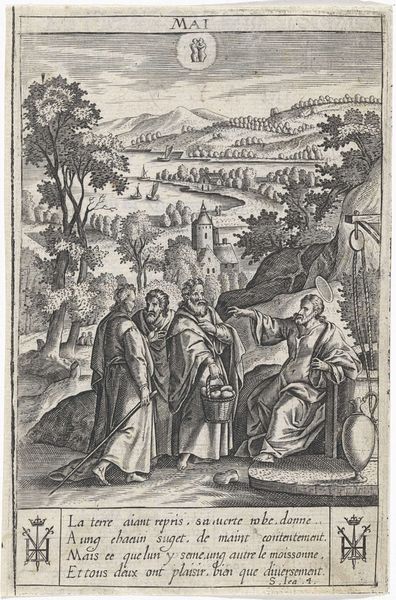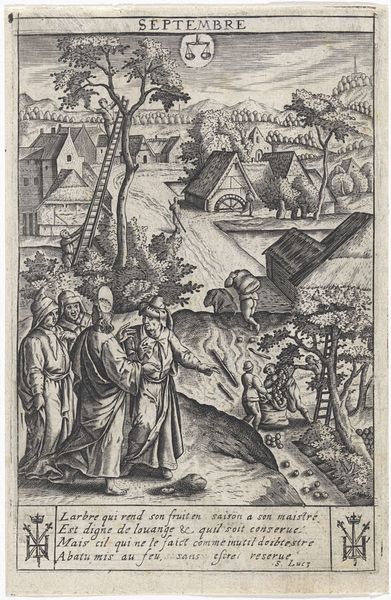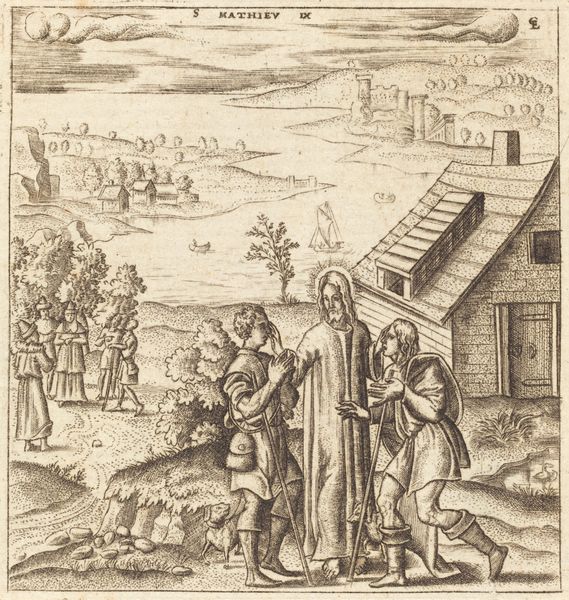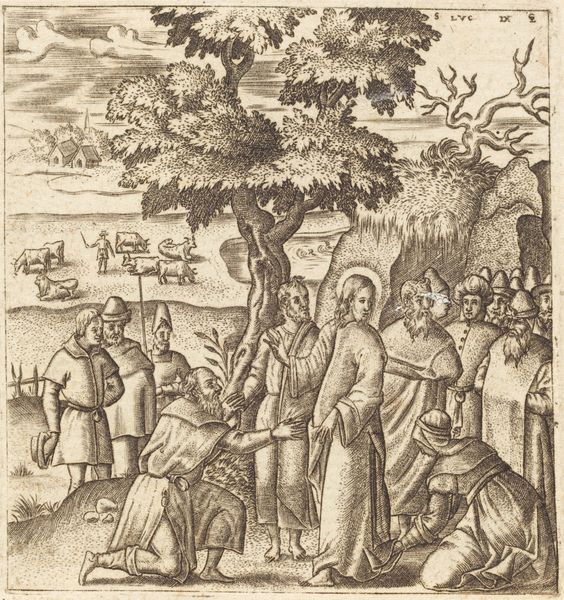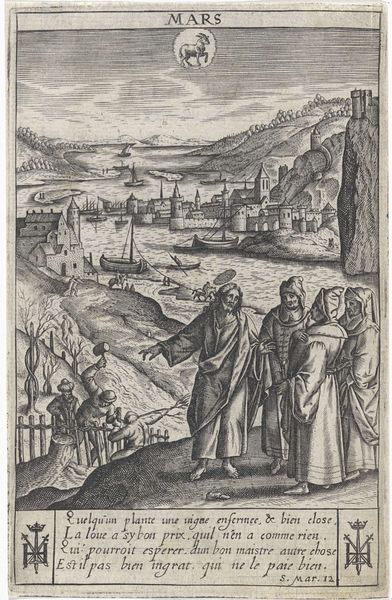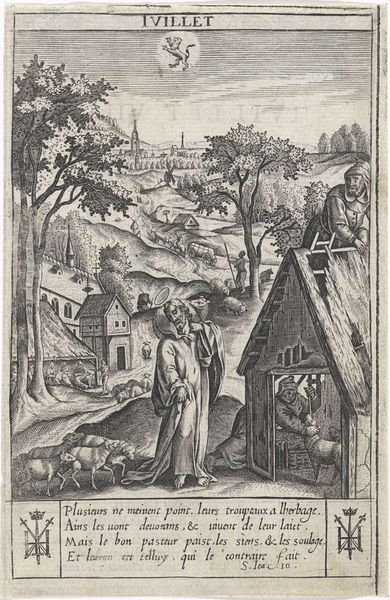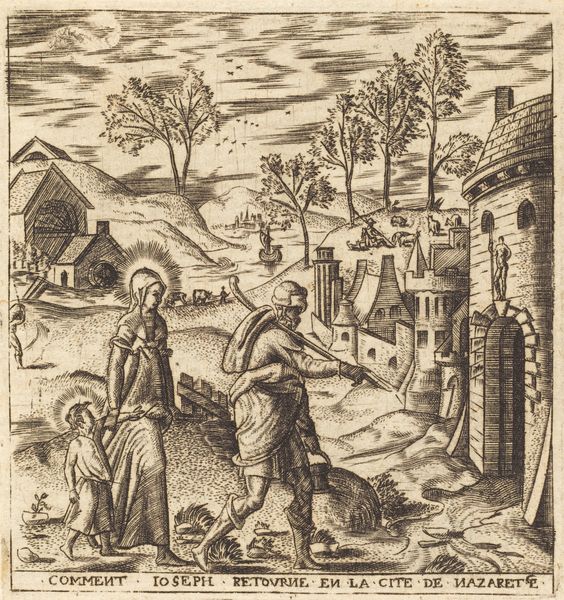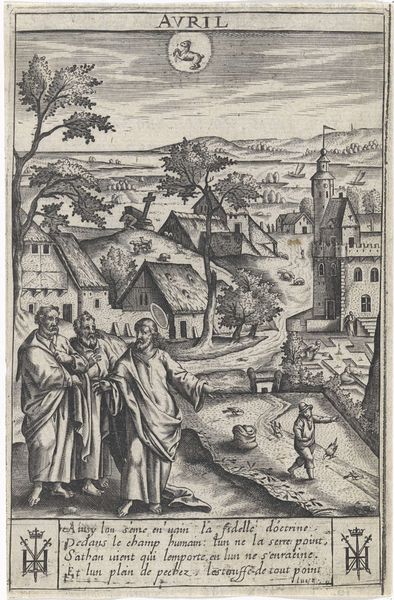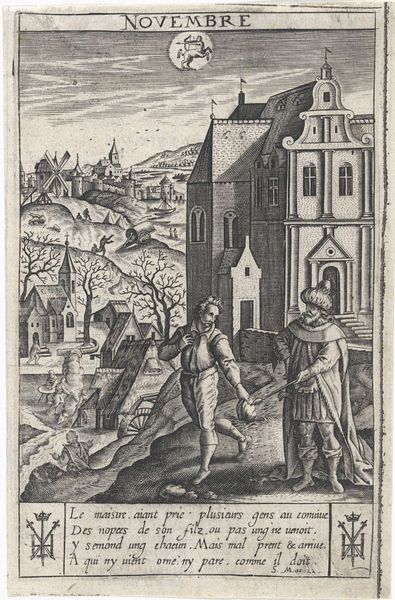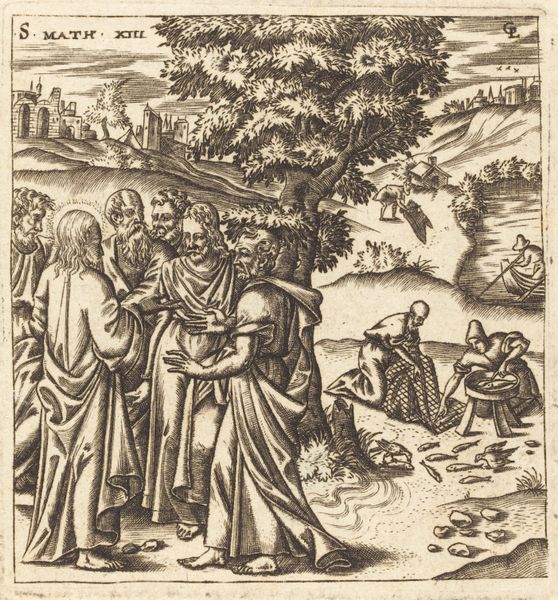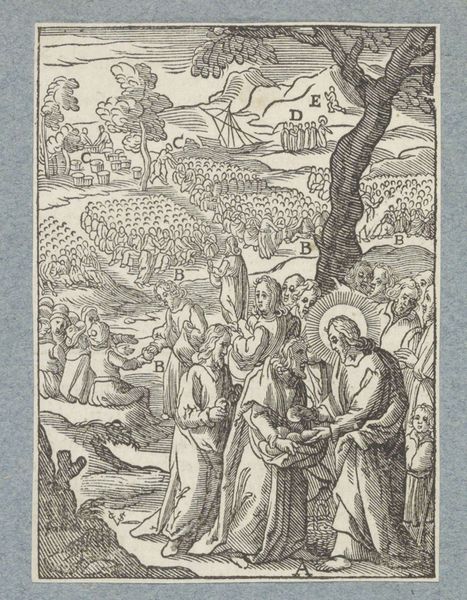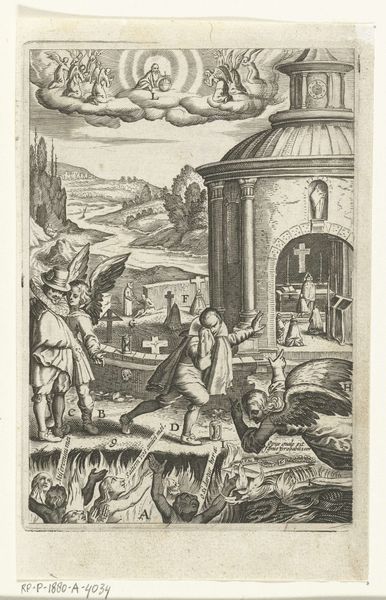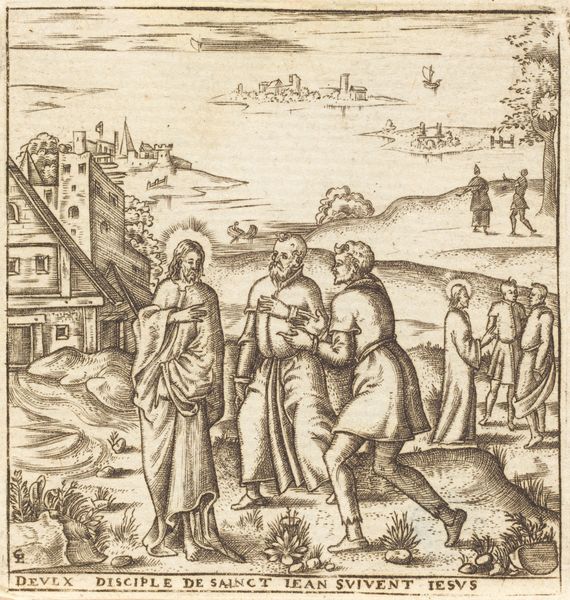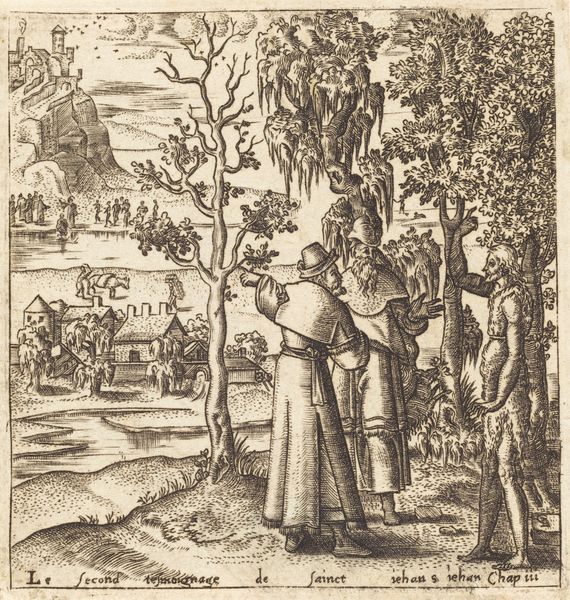
drawing, ink, engraving
#
drawing
#
ink drawing
#
medieval
#
pen drawing
#
ink
#
history-painting
#
engraving
Dimensions: height 139 mm, width 91 mm
Copyright: Rijks Museum: Open Domain
Editor: This ink drawing, titled "Juni," dates from between 1624 and 1645 and is attributed to Jan Gerritsz Swelinck. The density of figures and landscape details makes it feel incredibly crowded and busy, a bit overwhelming at first glance. What strikes you most about this piece? Curator: What grabs me is precisely that tension—the density you mention. But let's consider the context. The drawing combines a biblical scene with a landscape teeming with daily life. We have to ask ourselves: who is included and who is excluded in this "daily life," and what story does that exclusion tell? Editor: Interesting. I hadn't considered it that way. Can you elaborate on who seems to be excluded? Curator: Look at the laborers in the fields compared to the central figures, who appear to be from a biblical narrative. Note the figures positioned along the ground within nature who seem to function outside of these domains; how do we interpret their relationship? What socio-economic implications are woven into the piece's fabric? Think about power structures present at the time and who might have felt excluded or exploited within those social structures. Editor: So, the drawing isn't just a snapshot of daily life; it's subtly commenting on the social order. The lobster-like form positioned over the settlement in the image seems even more ominous now. Curator: Exactly! That is one interpretation. And this lens, through which we understand these tensions, acknowledges that art never exists in a vacuum; it’s always shaped by its social, political, and historical context. Editor: That really reframes how I see the drawing. I went from thinking it was just a busy scene to realizing it's a complex commentary. Curator: Precisely! And these are just the initial observations; so much more we can explore when looking through these kinds of lenses.
Comments
No comments
Be the first to comment and join the conversation on the ultimate creative platform.
